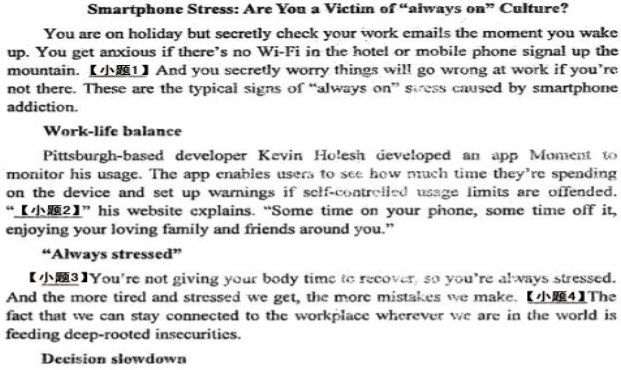题目内容
根据短文内容,从短文后的选项中选出能琐入空臼赃的鼓缝选项。遗项中肖两项为多余选项。


A.Moment's goal is to promote balance in your life.
B.You get excited if you receive a text message or an e-mail from a friend
C.This is leading to a sort of decision slowdown and it is creating more stress in the workplace.
D.The negative impact of “always on" culture is that your mind is never resting.
E.Physical and mental health therefore can suffer.
F.Mobile phone companies argue that mobile connectivity is beneficial.
G.You are nervous if your phone is getting low on power
练习册系列答案
相关题目

